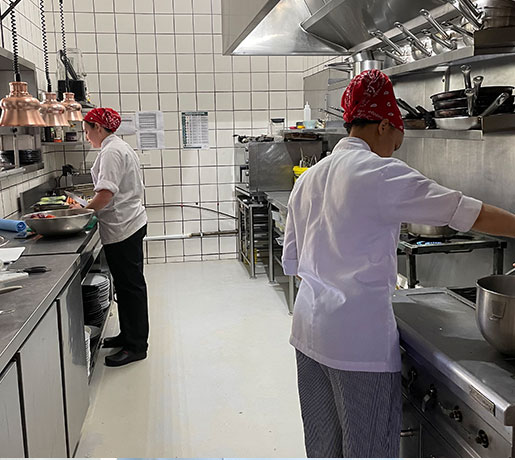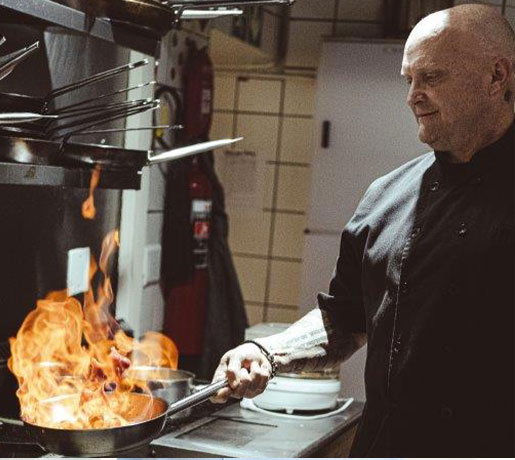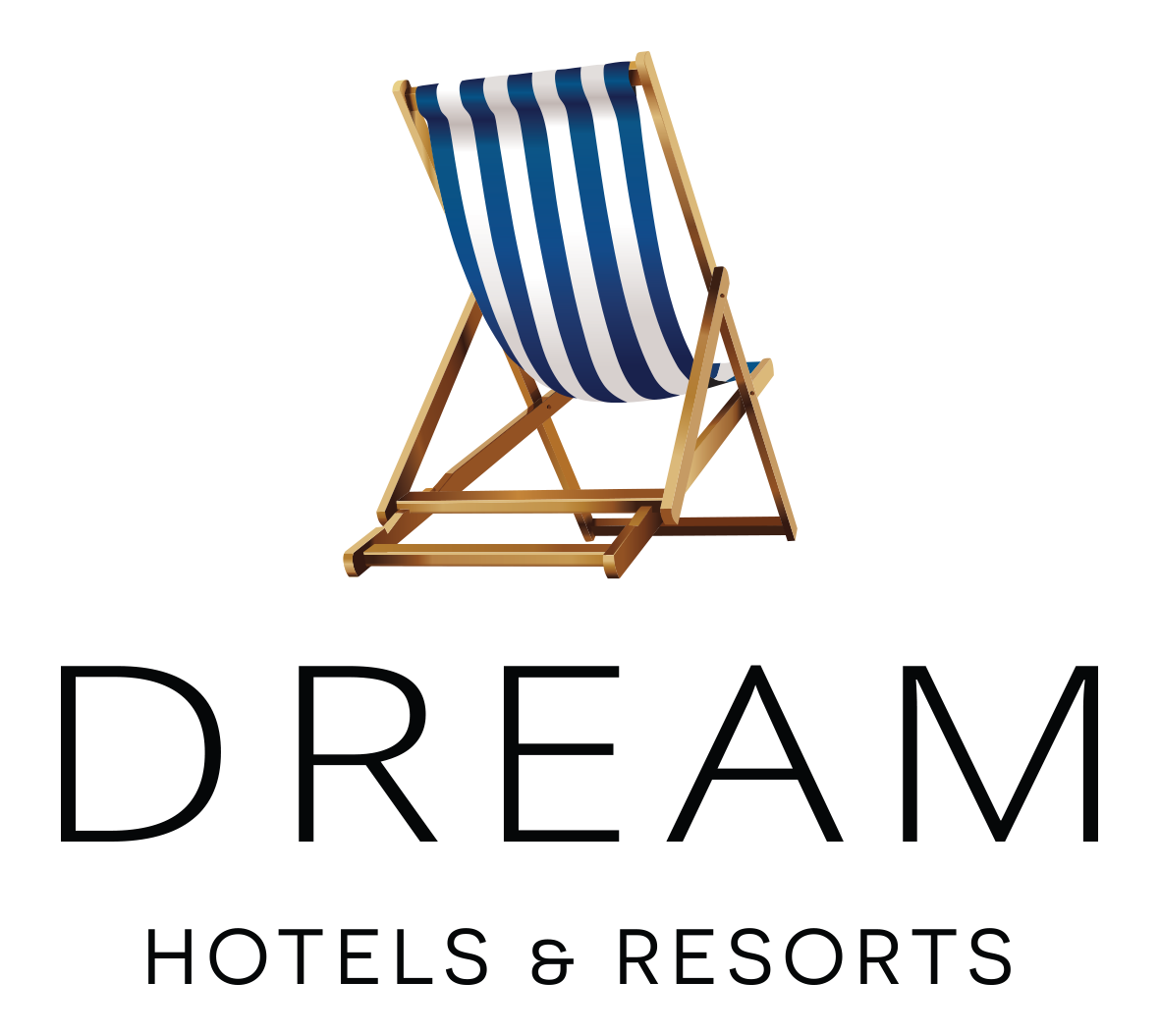Through our journey towards creating a healthy balance between our actions, our community, and the environment, our efforts at Dream Hotels & Resorts (DHR) have now culminated in a long-overlooked area – food.
“Instead of just focusing on what we put in the rooms, we’ve turned our attention to what we put on the plate, but most importantly, where it is sourced and how it is prepared,” says Reinhard Visser, Operations Lead at DHR.
“In an industry where mass-produced, warehouse-sourced fare dominates, we’re on a mission to promote conscious hospitality to enhance the guest experience and establish an enduring business model that better serves our communities, and the people we employ.”
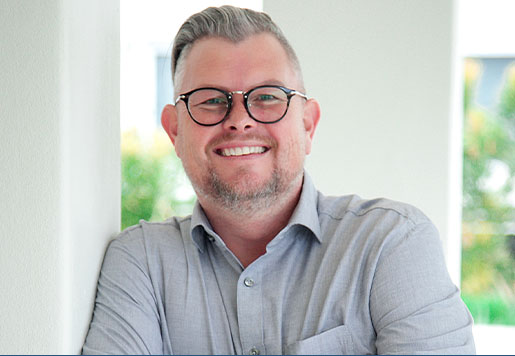
Reinhard Visser, Dream Hotels & Resorts Operations Lead.
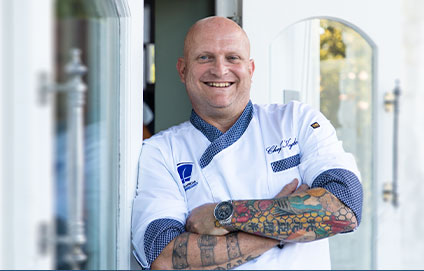
Kyle Norris, Executive Head Chef at Le Franschhoek Hotel & Spa.
Taking the lead in DHR’s efforts to establish greater awareness and accountability in the kitchen is renowned South African chef, Kyle Norris.
“Who better than a multi-talented chef with all the right credentials to help steer us in the right direction?” asks Reinhard. “As Executive Head Chef at Le Franschhoek Hotel & Spa, Kyle possesses a broad knowledge skillset, but most importantly, a willingness to teach, share, and support us along the way.”
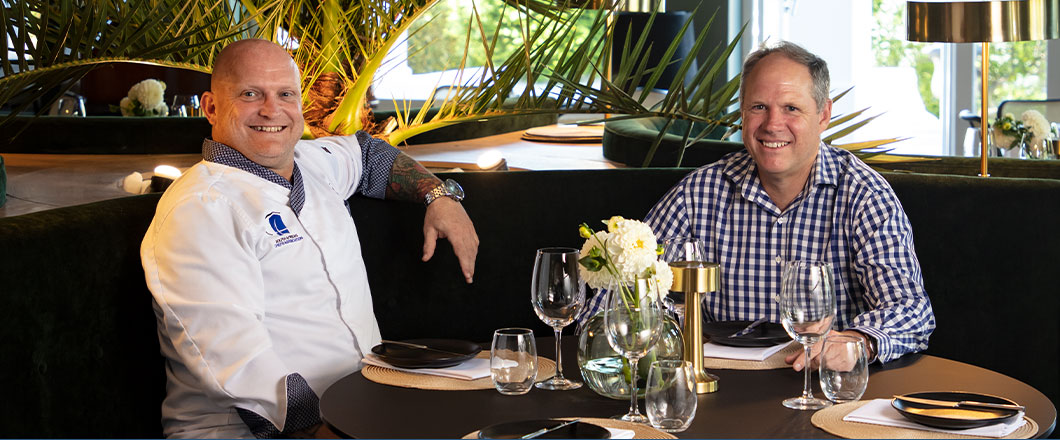
Kyle Norris & Murray Nel.
In just two years, Chef Kyle has played an integral role in regaining Le Franschhoek’s reputation amongst culinary travellers and ardent food-aficianados. Working closely with Custodian, Murray Nell, together they are spearheading a shared vision to reinvigorate the property at all levels.
“I knew our kitchen needed someone with experience, who I could trust, and most importantly, could fully understand the long-term vision for Le Franschhoek,” Murray explains. “It’s been challenging, and we’ve made mistakes along the way, but the positive change we’re seeing so far is insurmountable.”
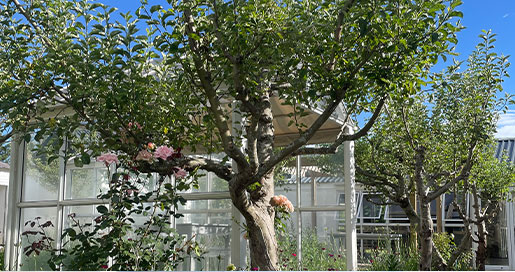
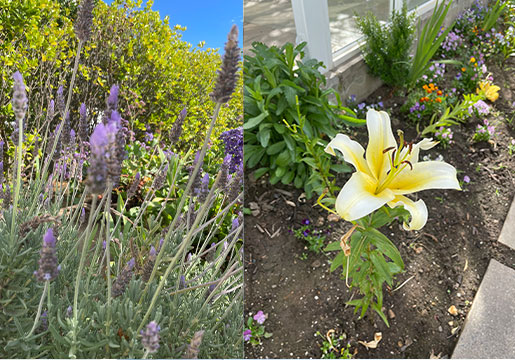
Walk the grounds today and you’ll find everything from rose bushes galore to fragrant pear, fig, lemon, and apple trees. There’s even an on-site apiary where honey is produced reflecting how most of what is cultivated on the surrounding land is incorporated into menus. This reflects Chef Kyle’s personal ethos on sustainability and his passion for creating immersive cuisine inspired by the garden.
“Sustainability doesn’t have to be daunting,” he adds. “It can be exciting, affordable, and dare I say fun. Here at Le Franschhoek, we keep it simple, seasonal, and intentional. We pickle and preserve to avoid waste and make an effort to seek out and create relationships with local farmers. Overall, a kitchen should not be viewed in isolation, but as part of the larger hospitality ecosystem.”
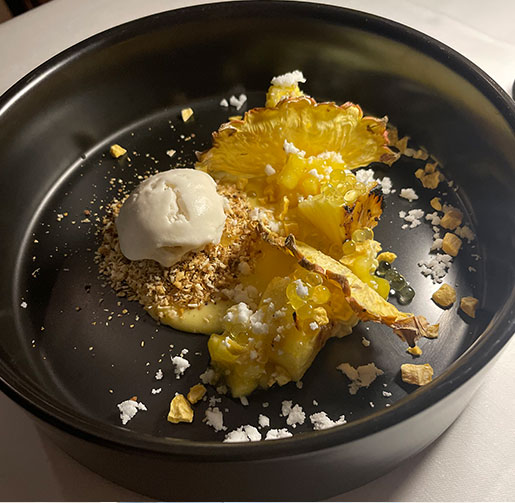
He is also insistent on the concept of bringing stories into food: “A guest might easily overlook how puffy their pillow was, but they won’t forget tucking into that fresh-from-the-farm pineapple mfula mfula dessert. They may even recall the anecdote on how the fruit is also fermented to make local beer! We mustn’t forget food is a connection point that can deepen our experience of the places we visit and the people we meet.”
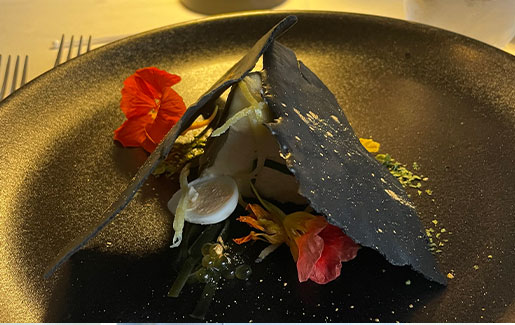
It may be perceived that Chef Kyle is the driving force behind Le Franschhoek’s culinary transformation. However, he insists that ultimately it comes down to collaboration, attributing much of their success to the talents of his team.
“I’m fortunate that I’ve had a direct hand in building my own team of promising individuals,” he explains. “The success of a kitchen is not guaranteed through simply bringing in a high-profile chef, but by creating the right structure of people, a supportive context, and a compelling direction.”
In speaking of his staff, he offers further praise to the predominantly all-female chef team behind Le Franschhoek’s Sauvage Restaurant – something he notes as a rarity in the culinary arts.
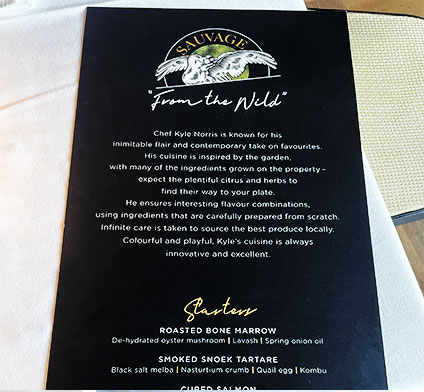
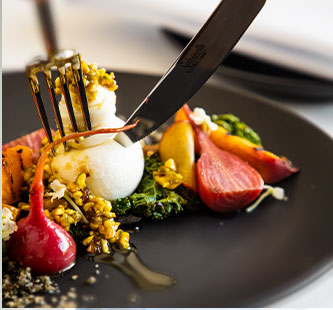
“The industry is far too often deprived of incredible female talent. We want to change that by offering a healthier space for women to build their confidence, hone their skills, and make a name for themselves.
“When it comes to leadership in the kitchen, being ruthless, and grinding down on people just doesn’t work. It’s a personal lesson I’ve had to learn the hard way. Having a sense of empathy and remembering your own humanity is far more effective in creating open communication and building trust.”
Touching on the current environment at Le Franschhoek, Sauvage Sous Chef, Odette Bloem, highlights a genuine sense of humility: “I’ve experienced my fair share of toxicity and disrespect in this industry, but I don’t get that here. There is freedom to learn, create, and feel purposeful. Yes, it’s still challenging, and Chef Kyle will hold us accountable for mistakes, but it’s done in a way that builds our resilience instead of being made to feel incompetent or less than.”
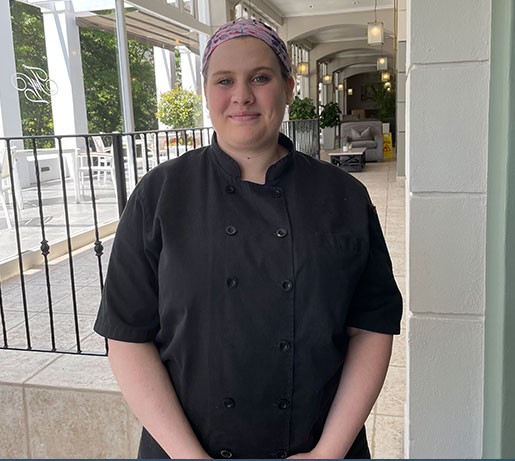
Chef Odette Bloem, Sauvage Sous Chef.
In considering the Group’s F&B department holistically, Reinhard emphasises their mission to transform their property kitchens into educational spaces with elevated opportunities for skill and knowledge sharing.
“We’d love to invite Chef Kyle into more of our kitchens elsewhere in the country to collaborate with, encourage, and support our chefs, as many of them work in isolation. From the executive chefs to the co-leads and assistants, we want to make things better for those whose livelihoods depend on our success.”
Murray adds: “We’re proud of what we’ve achieved at Le Franschhoek and more than happy to be seen as a working model for other properties to learn from. It’s not about telling others what they have to do, but rather a case of saying hey, this works well, this doesn’t. Here’s how you can get started. We’ve made all the mistakes so you don’t have to.”
With a significant number of lodges and resorts based in eco-sensitive areas, Reinhard lists several key objectives in their overall strategy towards sustainability across the Group, including enhanced waste management, and connecting with local producers to source organic ingredients.
“We’re excited at the prospect of cultivating in-house,” he adds. “From Little Switzerland Resort in the Drakensberg to Stonehill River Lodge in Swellendam, several properties have already established their own vegetable gardens and organic waste disposal systems. There is so much potential!”
Commenting on their overall vision for the future, he concludes by noting the importance of taking greater accountability rather than simply overhauling their menus.
“It’s not about perfectionism. It’s about challenging ourselves to look inward, to work with what we have around us, and to establish healthier systems of thinking and doing. We want to bring back a renewed sense of pride and do our part in rejuvenating South Africa’s culinary landscape so that guests will want to return, and our country’s young talent will be inspired to be a part of it.”
